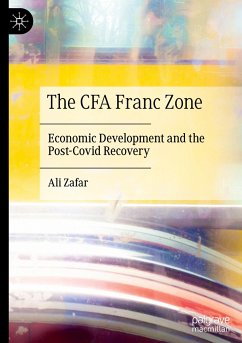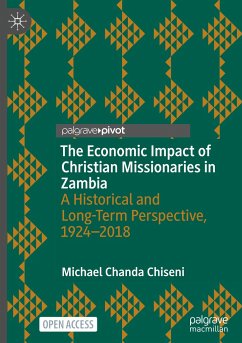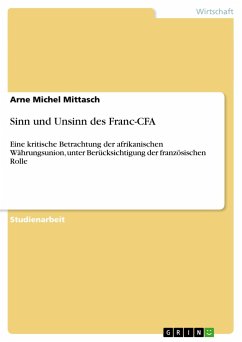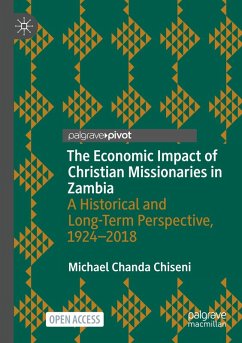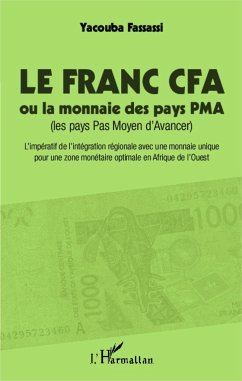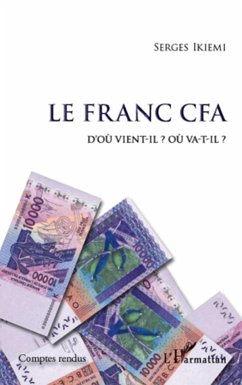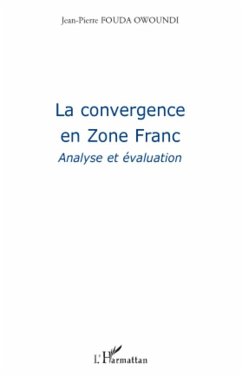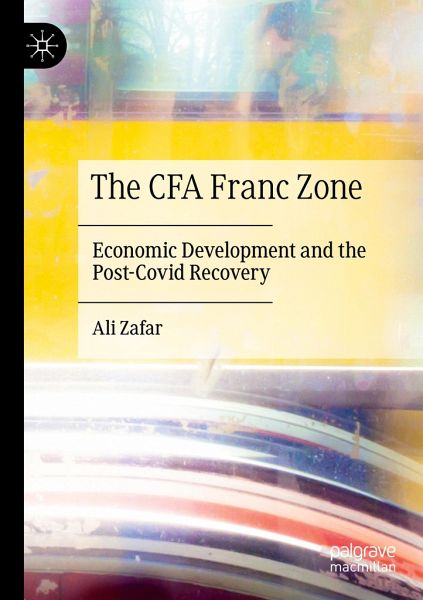
The CFA Franc Zone
Economic Development and the Post-Covid Recovery
Versandkostenfrei!
Versandfertig in 6-10 Tagen
91,99 €
inkl. MwSt.
Weitere Ausgaben:

PAYBACK Punkte
46 °P sammeln!
This book provides an empirical analysis of economic and political structures impacting the CFA franc zone. Concise and practical chapters explore the history of the CFA franc zone, challenges to development, geopolitical issues, the importance of flexible exchanges rates, growth trends, and the impact of the Covid crisis. Policy reform is examined to detail economic approaches that could reduce poverty and increase the quality of life within the area.This book aims to present a macroeconomic and exchange rate framework to promote development and post-Covid recovery within the CFA franc zone. ...
This book provides an empirical analysis of economic and political structures impacting the CFA franc zone. Concise and practical chapters explore the history of the CFA franc zone, challenges to development, geopolitical issues, the importance of flexible exchanges rates, growth trends, and the impact of the Covid crisis. Policy reform is examined to detail economic approaches that could reduce poverty and increase the quality of life within the area.
This book aims to present a macroeconomic and exchange rate framework to promote development and post-Covid recovery within the CFA franc zone. It will be of interest to students, researchers, and policymakers involved in African economics, the political economy, and development economics.
This book aims to present a macroeconomic and exchange rate framework to promote development and post-Covid recovery within the CFA franc zone. It will be of interest to students, researchers, and policymakers involved in African economics, the political economy, and development economics.





